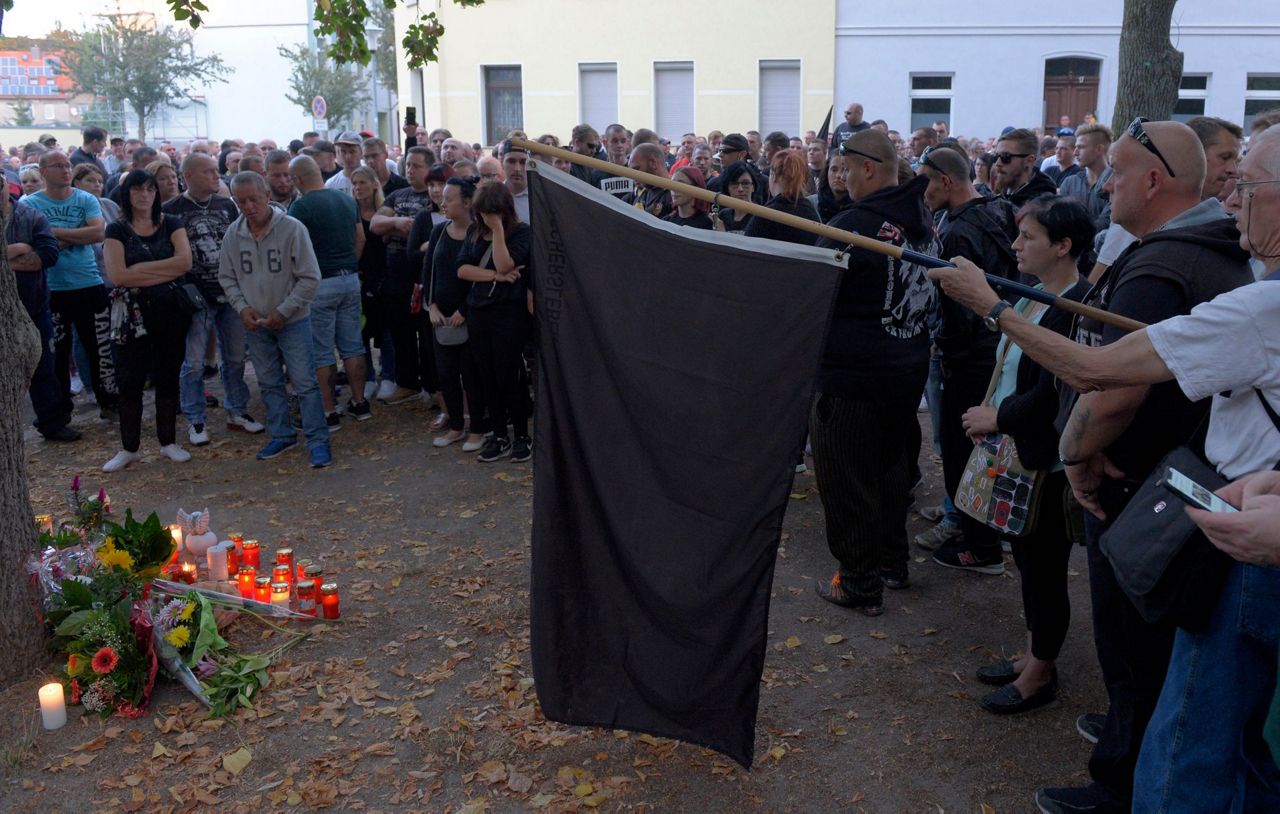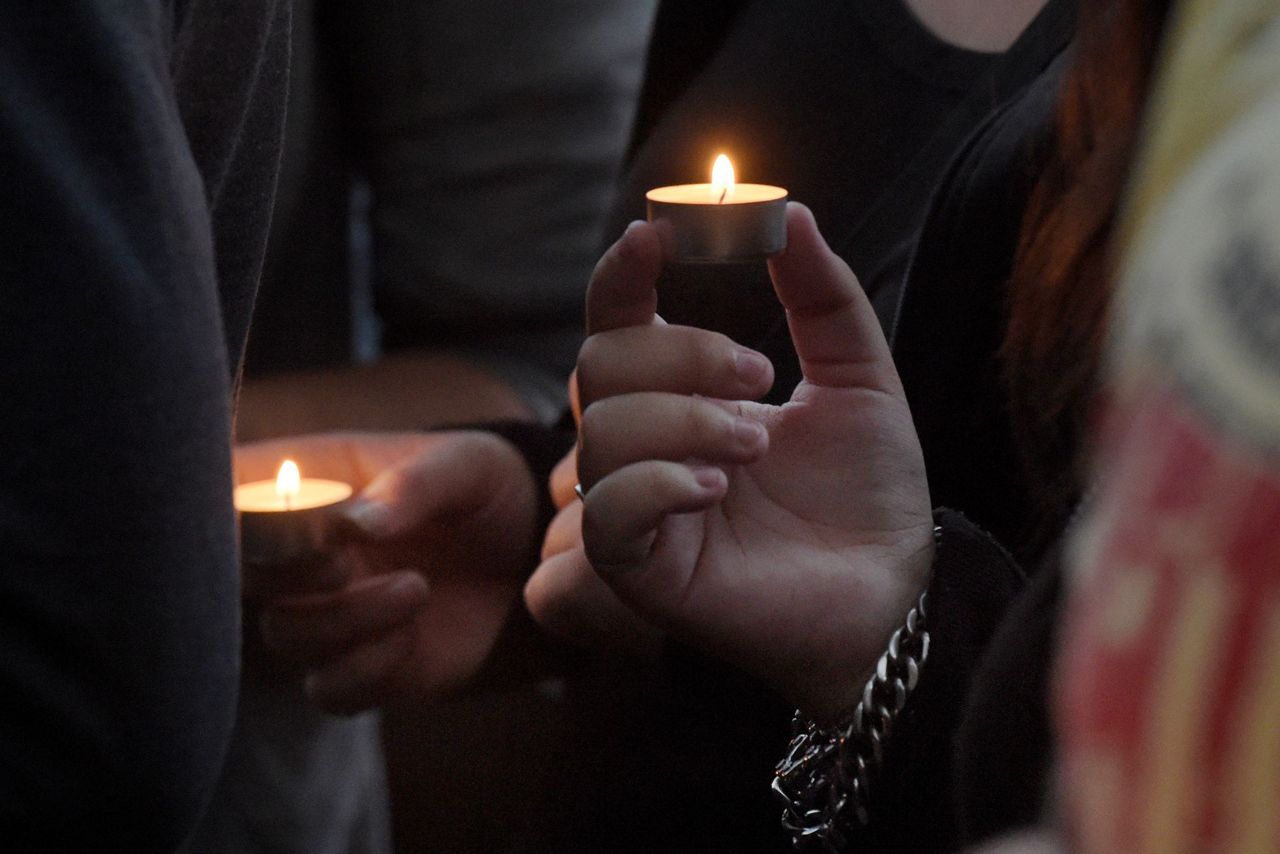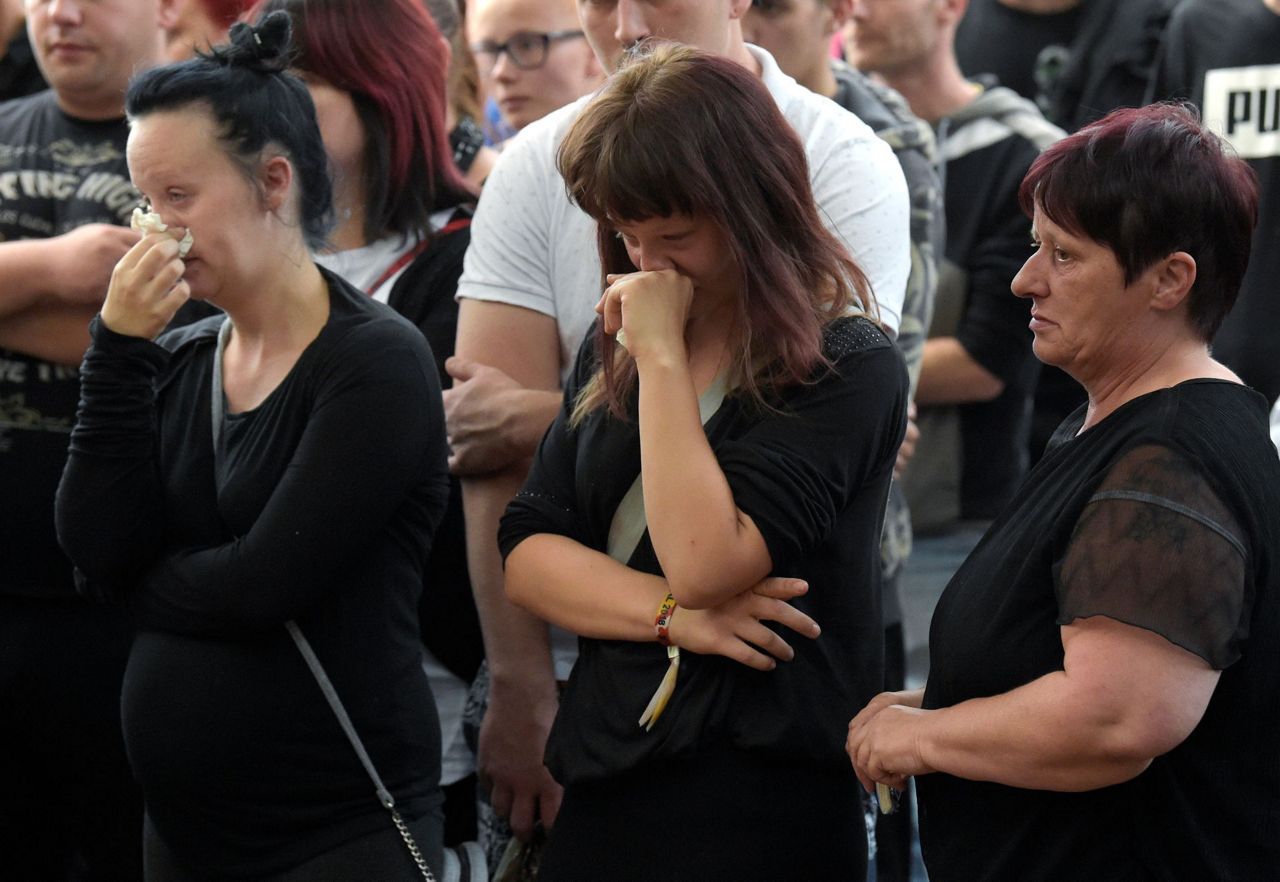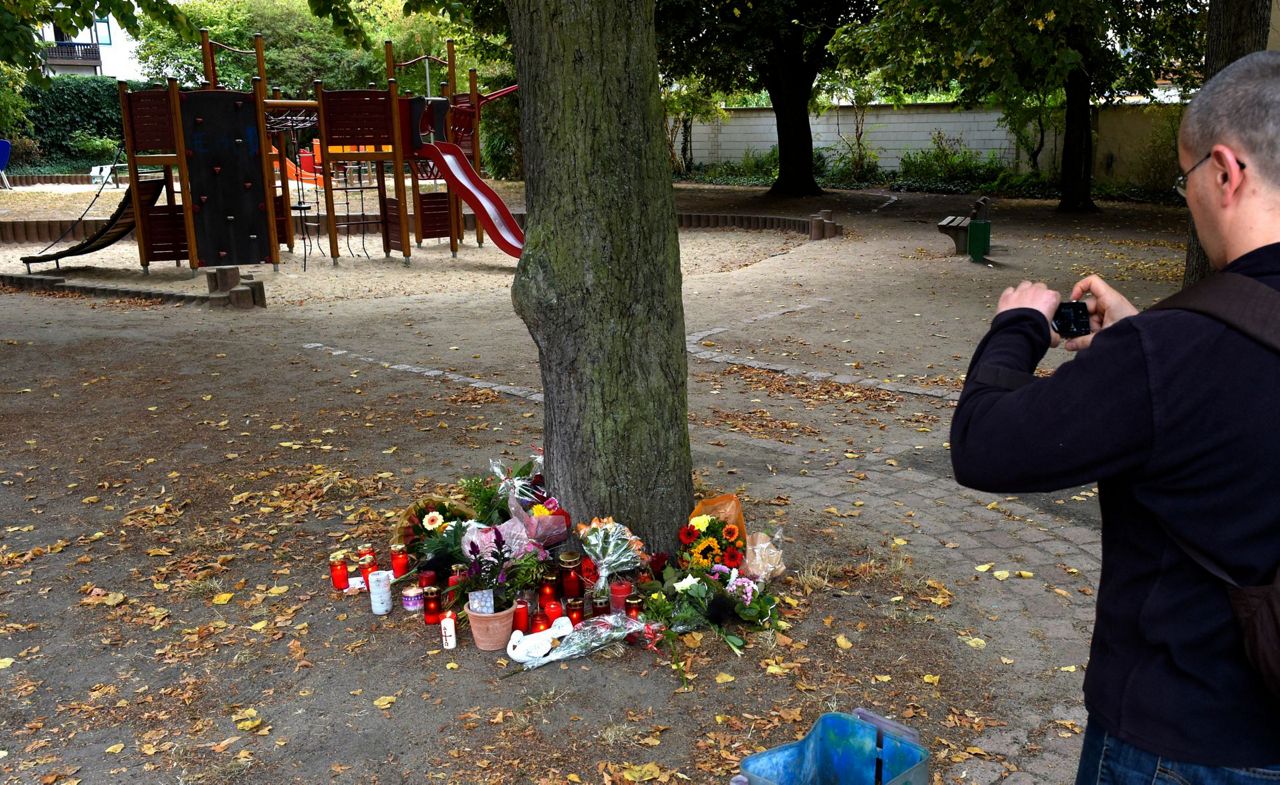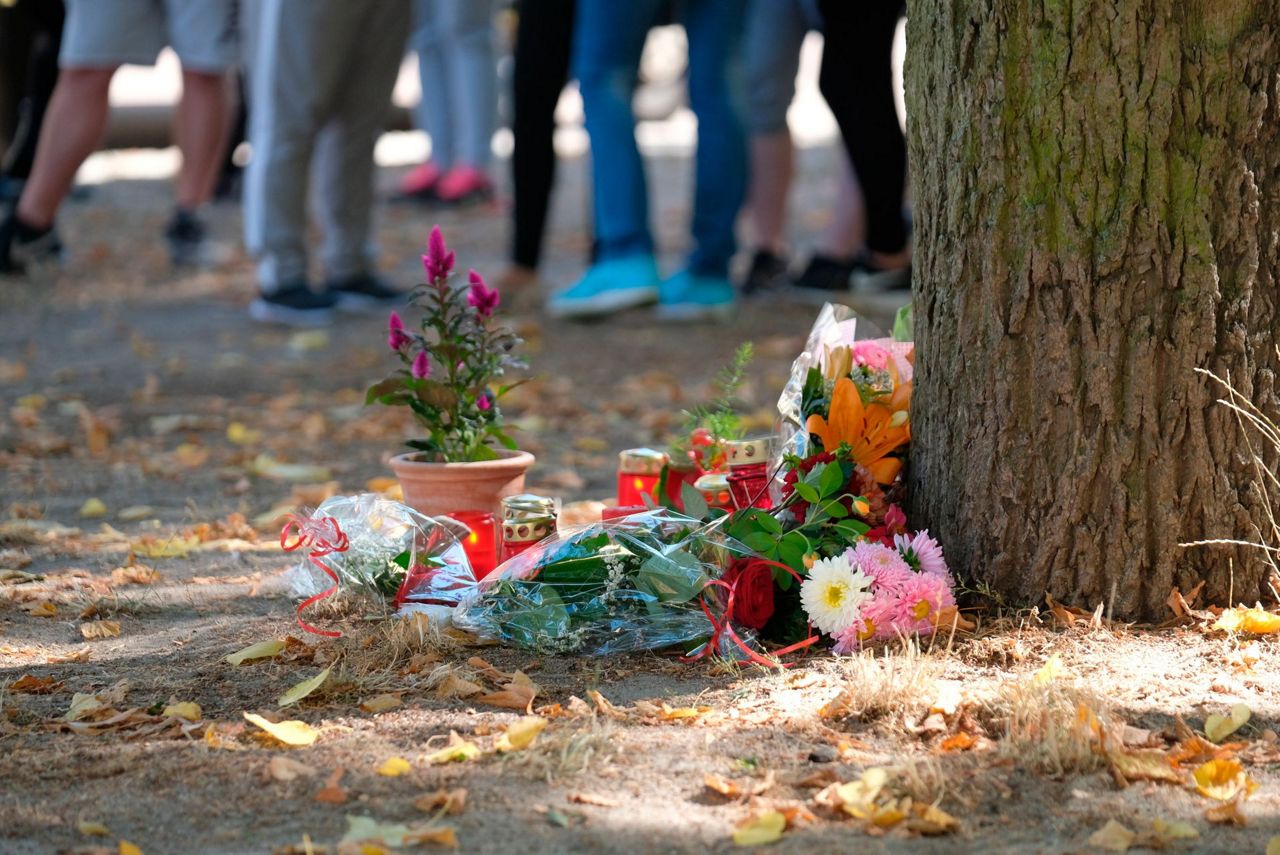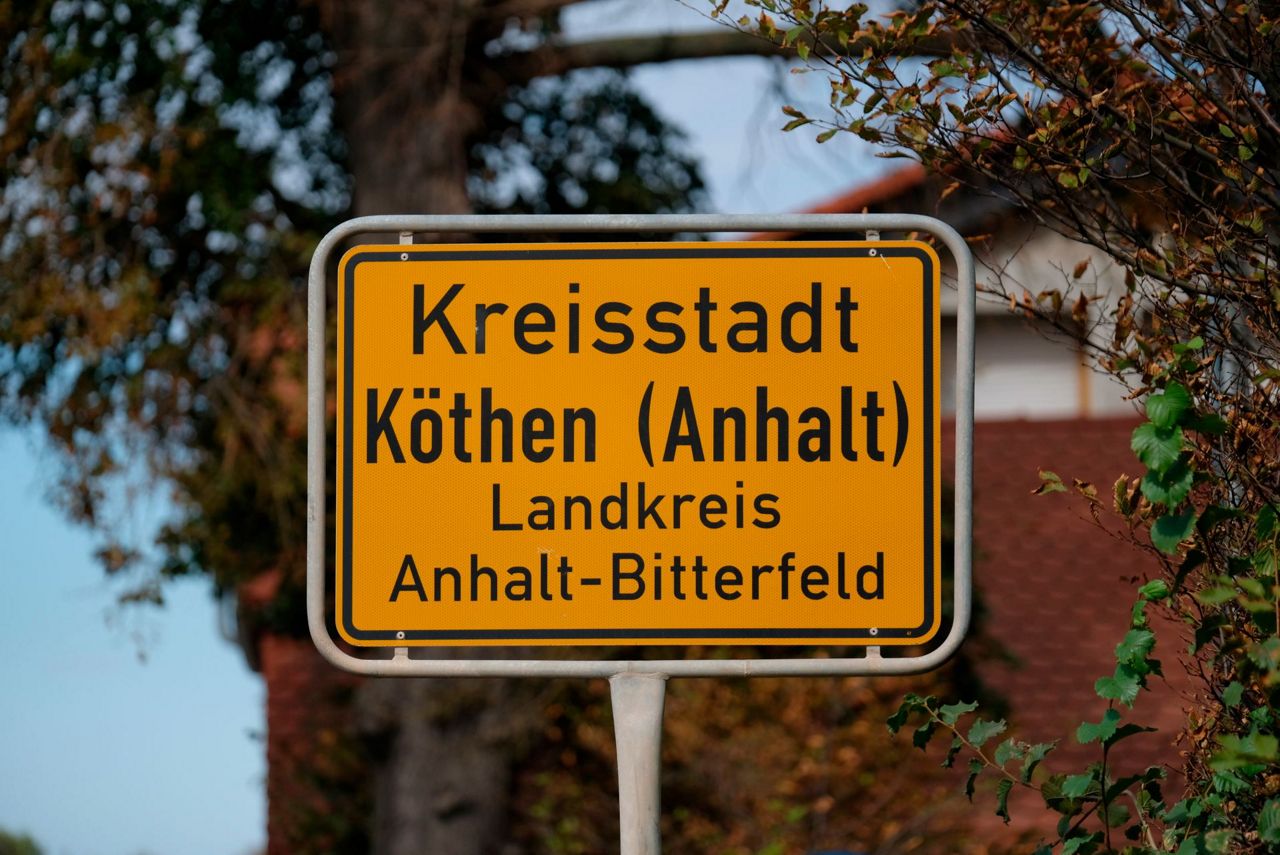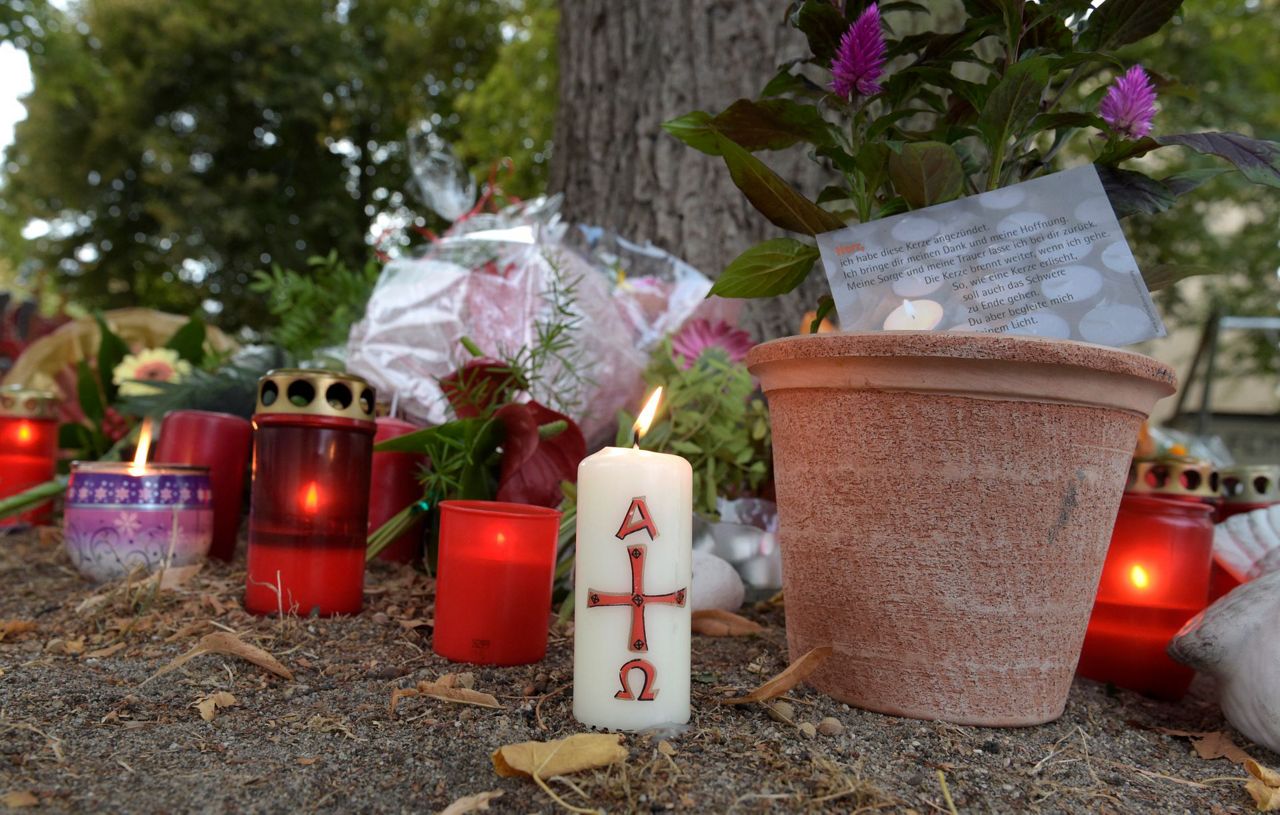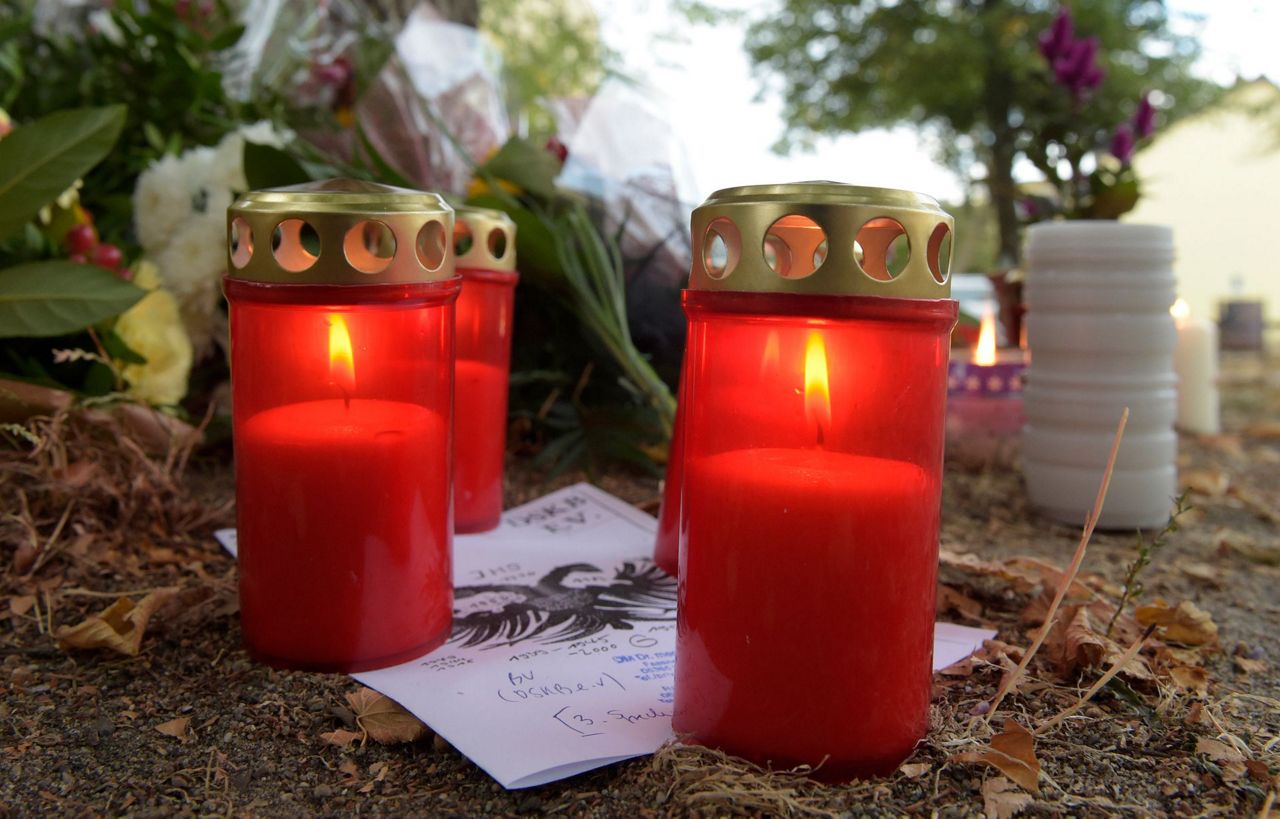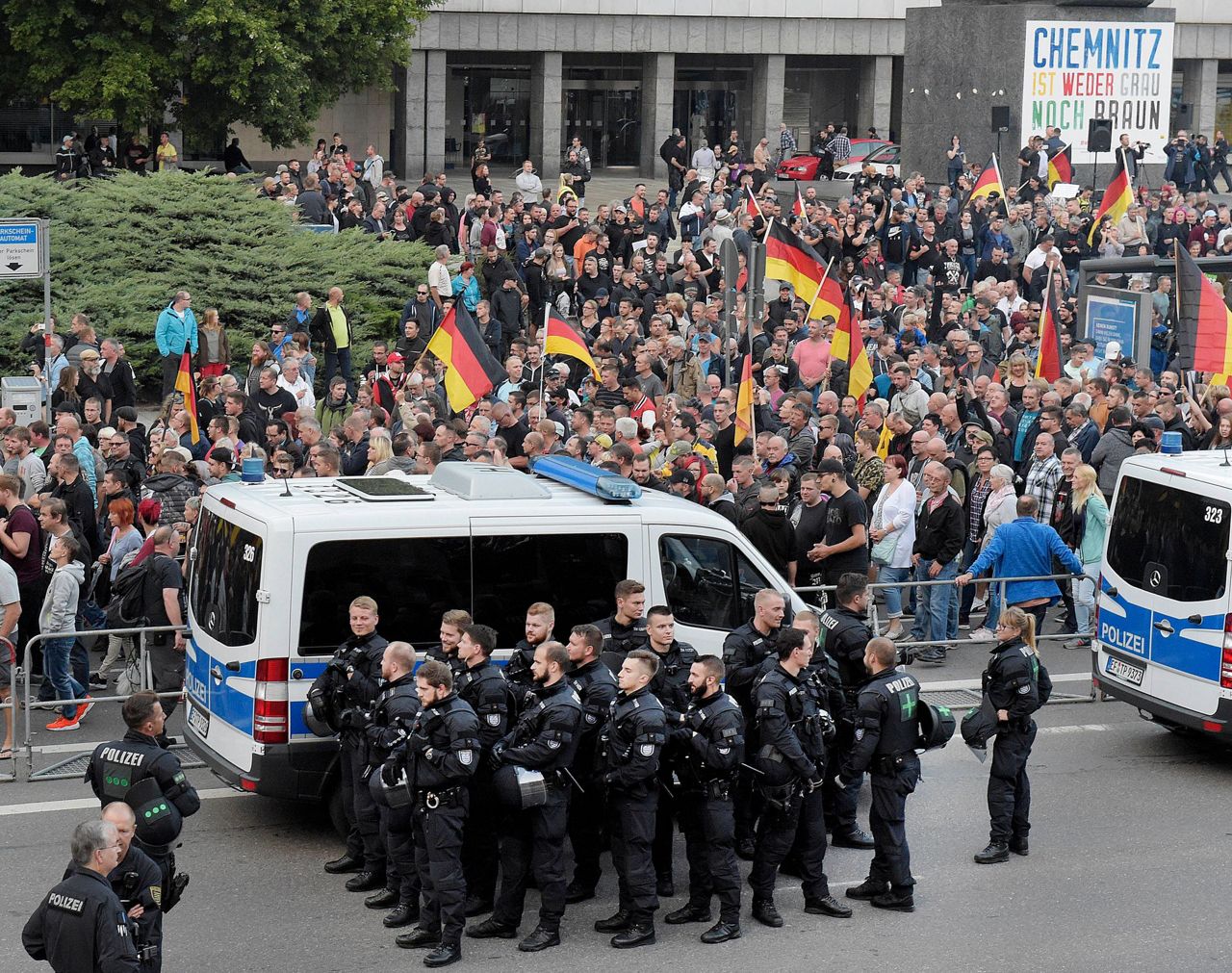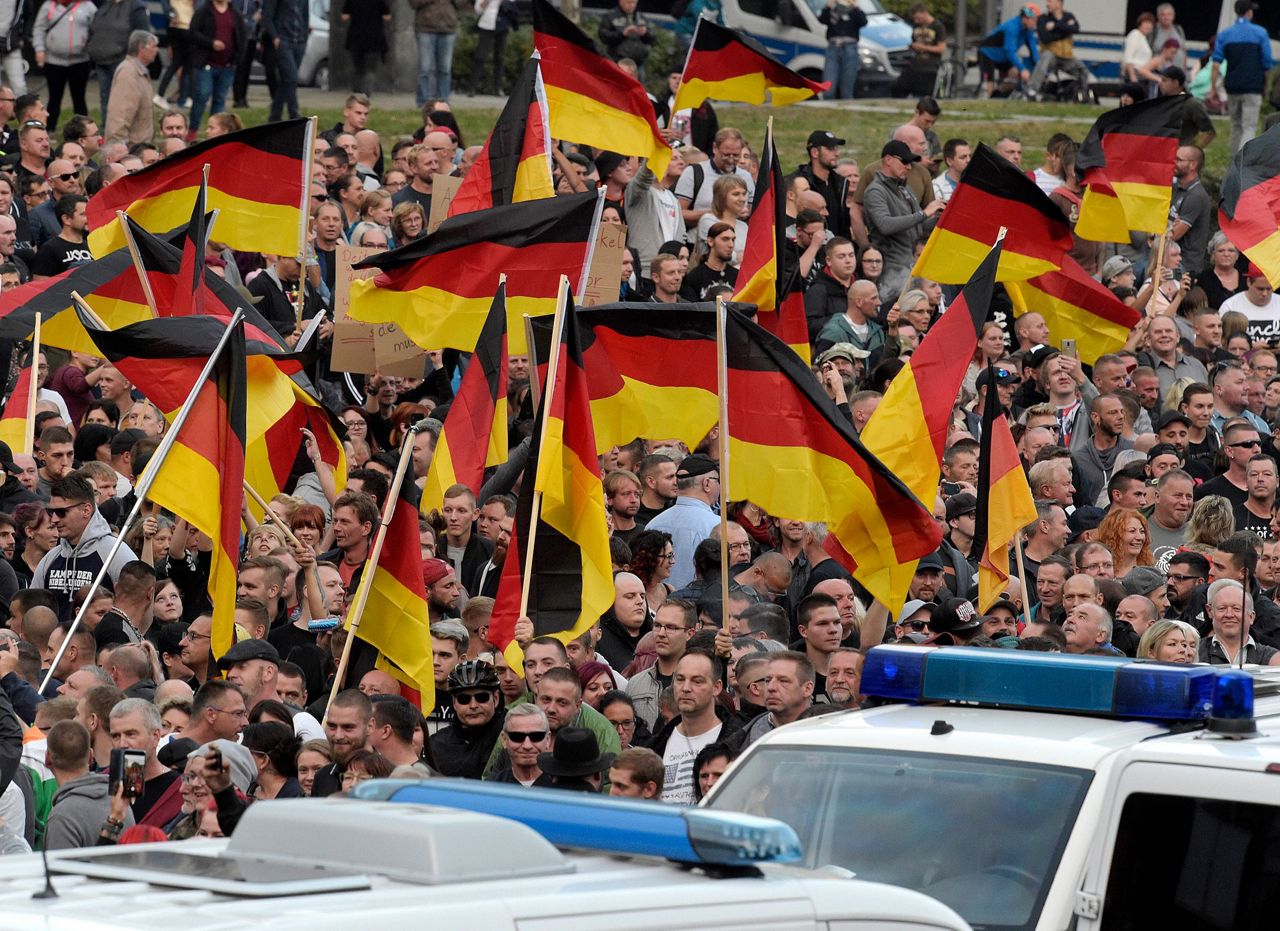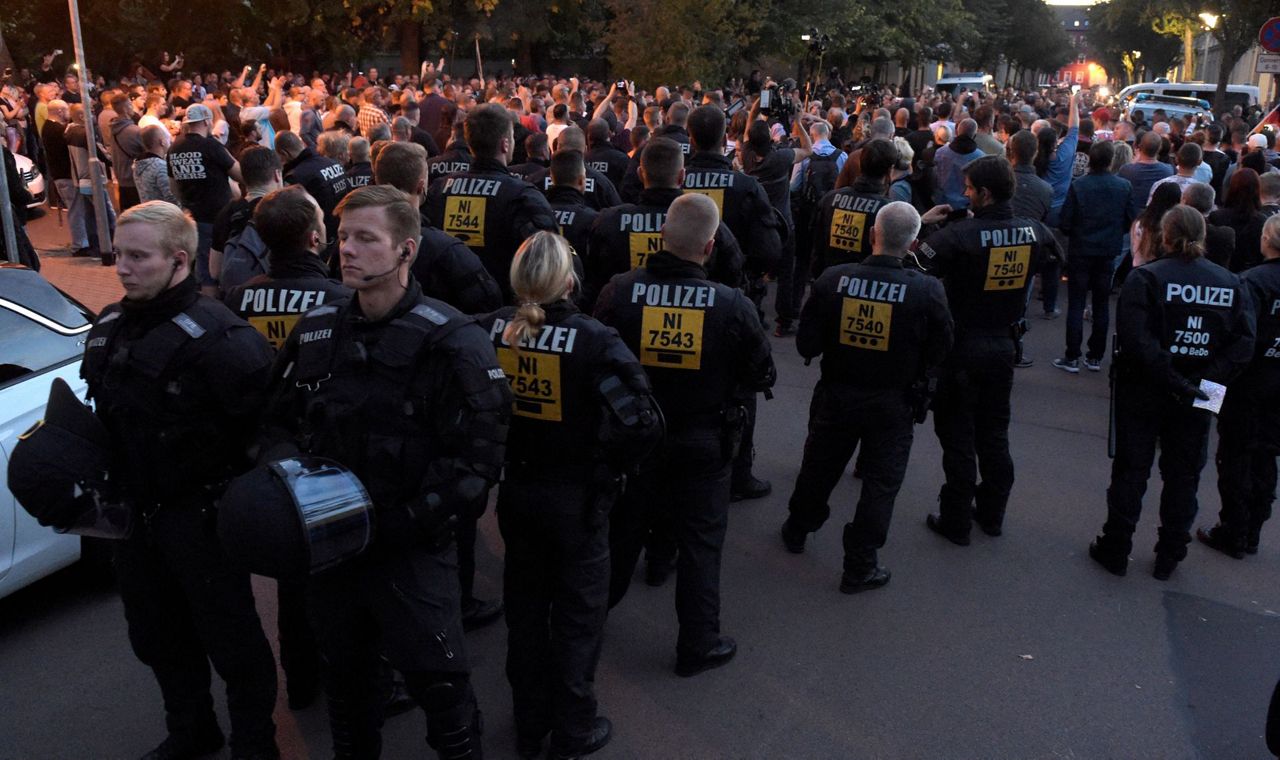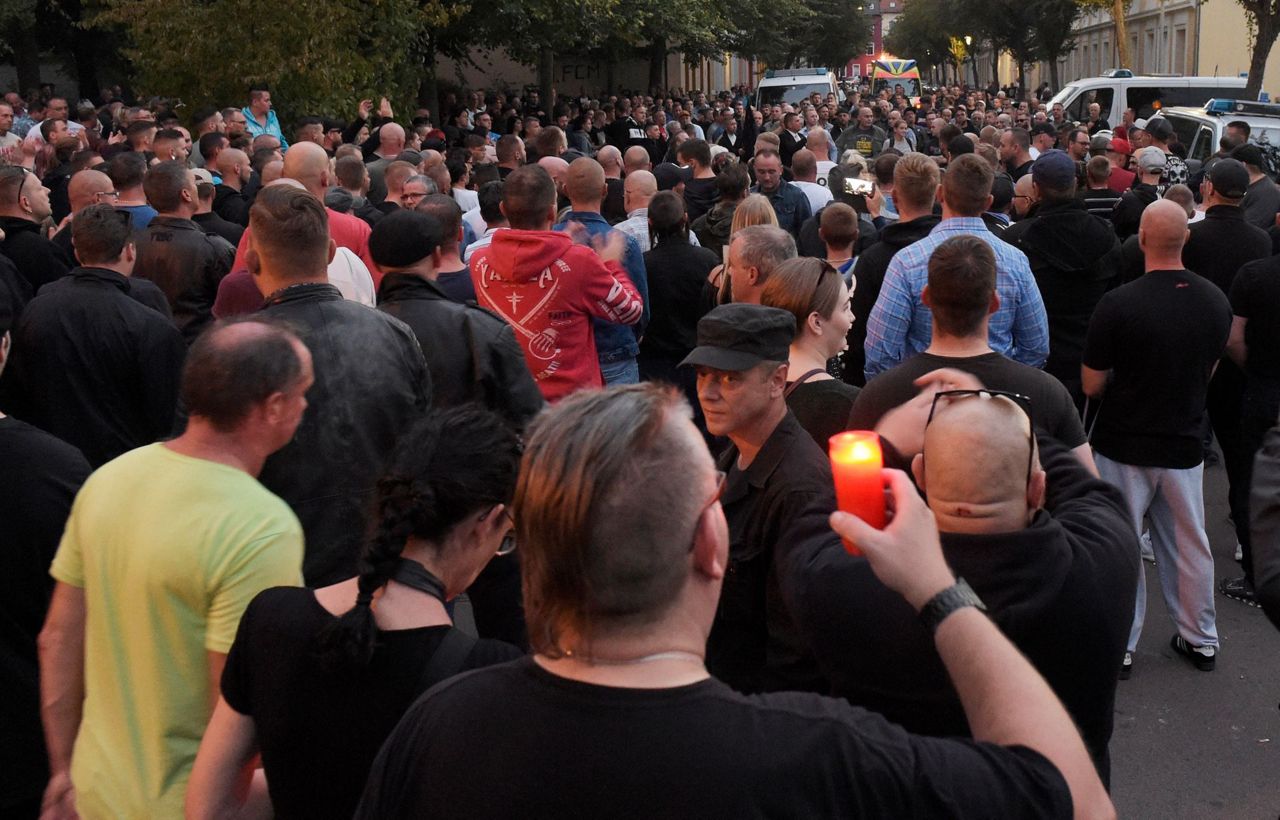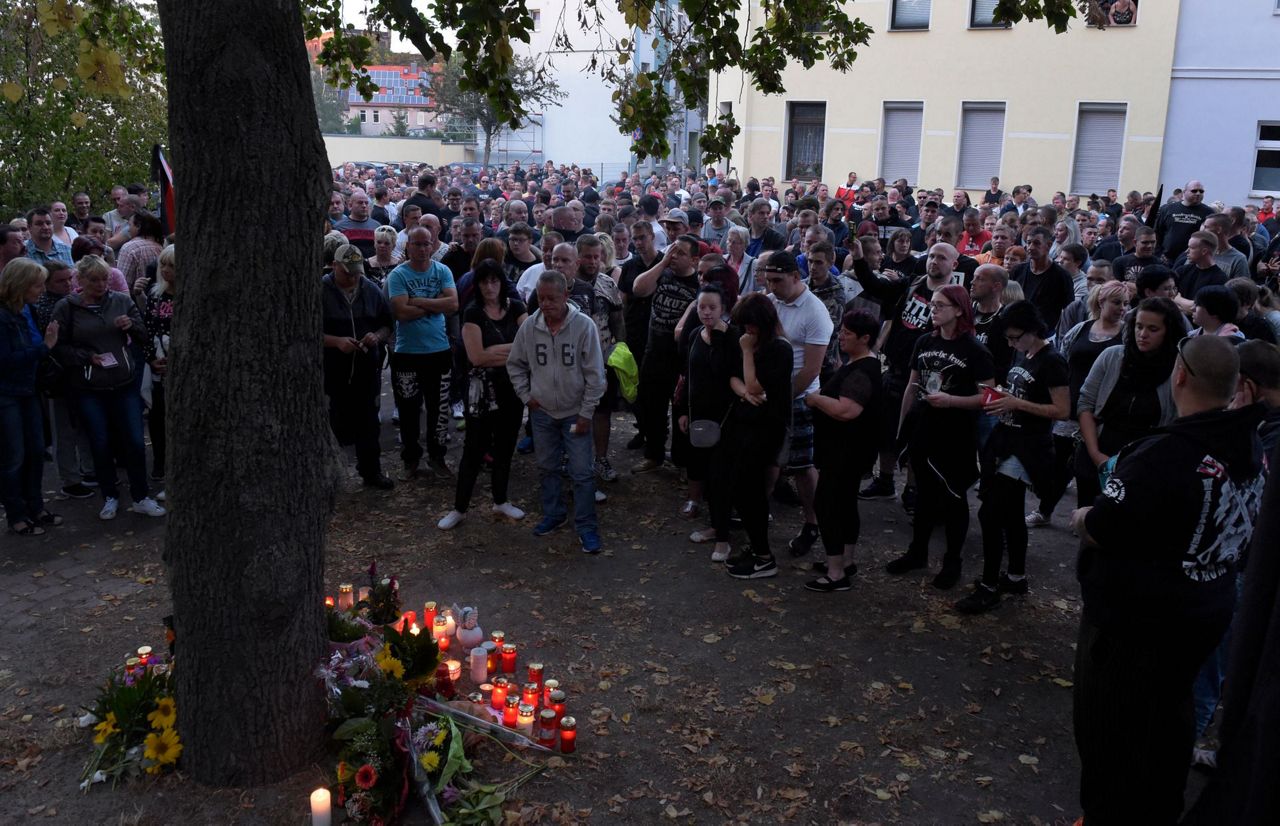BERLIN (AP) — An attack on a kosher restaurant by masked neo-Nazis on the sidelines of an anti-migrant protest in an eastern German city shows there's a deep problem with right-wing extremism in the region and should be treated as a call to action, the head of Germany's Central Council of Jews said Sunday.
Josef Schuster, who had previously condemned the violent far-right protests in Chemnitz on Aug. 26 and 27 before the attack on the Jewish restaurant was even known, said "we need to call the problem by its name."
"The racist riots and the attack on the kosher restaurant in Chemnitz show how strongly rooted right-wing extremism is in the region," he said.
Hundreds of protesters took to the streets after a German man was stabbed and killed Aug. 26 after authorities say a verbal argument with migrant men escalated. An Iraqi and a Syrian have been arrested on manslaughter charges. That day several foreigners were injured after authorities said they were attacked in the streets.
The next night, around 6,000 far-right protesters including neo-Nazis, members of the anti-migrant Alternative for Germany party and others clashed with counter-demonstrators. On the sidelines, masked protesters attacked the Shalom restaurant with rocks and bottles, injuring the owner while shouting "Jewish pig, get out of Germany."
The unrest following the killing has focused new attention on Chancellor Angela Merkel's decision three years ago to allow hundreds of thousands of refugees into the country, straining its resources and hospitality beyond what some Germans considered acceptable.
Anti-migrant sentiment has been particularly strong in Saxony, the state where Chemnitz is located. The nearby state capital of Dresden is home to the group Patriotic Europeans Against the Islamization of the West, or PEGIDA, and the Alternative for Germany received almost a quarter of the vote in Saxony last year.
The protests have also exposed a rift between Merkel and top security officials. Her domestic spy chief last week openly questioned her spokesman's statement that foreigners were "hunted" in the streets by the angry mob, saying he'd seen no credible evidence of it, and Interior Minister Horst Seehofer on Thursday expressed sympathy for the protesters.
"If I were not a minister, I'd have gone to the streets as a citizen," Seehofer said, quickly adding: "Naturally, not together with the radicals."
Schuster slammed the officials, without identifying any by name, saying that efforts to "obviously minimize the incidents make me seriously doubt the work of these authorities."
"Attempts at appeasement and a lack of distancing from the right-populists play exactly into the hands of these forces," he said.
Saxony state Interior Minister Roland Woeller met Saturday with the owner of the Jewish restaurant, and assured him police were working intensively to "solve this abhorrent crime," the dpa news agency reported.
Police last week said they'd already identified six far-right protesters who gave the stiff-armed Hitler salute or committed other violations of Germany's statute banning the display of Nazi symbols during the protests. They said they were reviewing video evidence in dozens of other cases.
In an unrelated incident in the neighboring state of Saxony-Anhalt, police said two Afghan men, aged 18 and 20, were arrested in the killing of a 22-year-old German man.
A fight between the Afghans, the victim and another German man allegedly transpired in the city of Koethen after a dispute over who had impregnated a woman, dpa reported.
Police said an autopsy revealed the man died of heart failure that was "not in direct causal relationship with his injuries." Local media reported he had a previous heart problem.
Given the autopsy results, police said the 18-year-old was being investigated on suspicion of bodily harm and the 20-year-old on a charge of bodily harm with death resulting.
Despite unanswered questions about what led to the man's death, Alice Weidel, a leader of the Alternative for Germany, wrote on Facebook: "How many more need to die? Germany needs a migration turnaround."
Organized services for the German who died were held at the scene and later at a city church.
In the evening, about 500 far-right supporters marched in the city. A few dozen were on hand for a counter-protest.
Large numbers of police, including from surrounding states, were deployed to keep watch and no major incidents were reported.
Copyright 2018 The Associated Press. All rights reserved. This material may not be published, broadcast, rewritten or redistributed.



